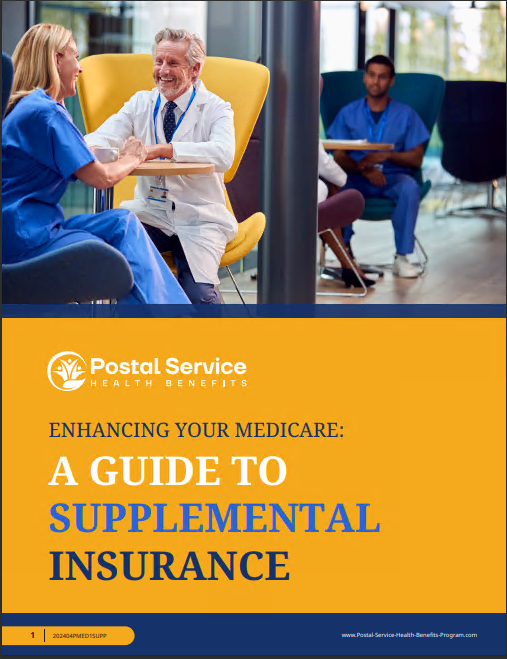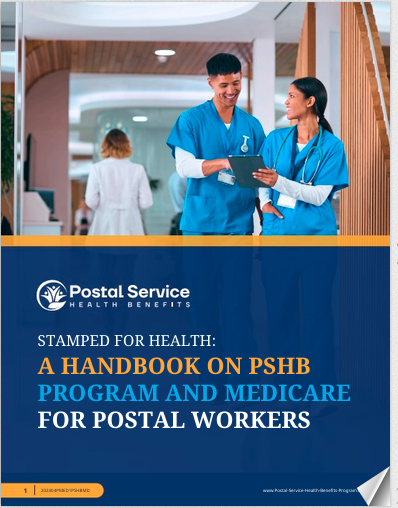
Key Takeaways
- USPS employees and retirees must enroll in the new Postal Service Health Benefits (PSHB) program during the 2024 Open Season to avoid losing health coverage in 2025.
- Retirees eligible for Medicare must sign up for Medicare Part B to maintain their PSHB benefits and avoid permanent penalties.
Postal Workers Must Act Fast: New Health Plan Deadlines and What They Mean
In 2024, U.S. Postal Service (USPS) employees and retirees face significant changes to their health insurance with the upcoming Postal Service Health Benefits (PSHB) program. This change is a result of the Postal Service Reform Act, which mandates that postal workers and retirees transition to the PSHB program by January 1, 2025. If you are a postal worker or retiree, it’s essential to act quickly and meet all deadlines to avoid disruptions in your healthcare coverage. In this article, we’ll explain what the PSHB program entails, key deadlines you need to know, and the steps you must take to ensure continuous coverage.
The Postal Service Health Benefits (PSHB) Program Explained
The PSHB program is a separate healthcare benefits program tailored specifically for USPS workers, retirees, and their eligible family members. It replaces the Federal Employees Health Benefits (FEHB) program, which covered postal workers for decades. The creation of a separate health benefits program is intended to align the Postal Service’s healthcare system more closely with Medicare, particularly for retirees. This move aims to streamline healthcare administration for postal employees and help reduce long-term costs for both the USPS and its retirees.
Why the Change?
The transition to the PSHB program is driven by a desire to enhance efficiency within the Postal Service. By creating a separate health benefits system, the USPS aims to better address the unique healthcare needs of postal workers and retirees. For retirees, the alignment with Medicare is a key aspect of the reform. Retirees who are eligible for Medicare must now enroll in Medicare Part B to be eligible for PSHB benefits. This is a significant change from the previous FEHB system, where enrollment in Medicare was optional.
The PSHB program will cover all the essential healthcare benefits that were previously available under the FEHB program. However, USPS employees and retirees must carefully review their options during the 2024 Open Season to ensure they choose the best plan for their individual needs. Additionally, retirees must be particularly mindful of the new Medicare enrollment requirements to maintain their health benefits under PSHB.
Critical Deadlines in 2024
Several important deadlines are approaching for USPS employees and retirees as they transition to the PSHB program. Missing these deadlines could result in a loss of health coverage, penalties, or being automatically enrolled in a default plan that may not fit your healthcare needs.
1. 2024 Open Season (November 11 – December 9, 2024)
The first and most crucial deadline is the 2024 Open Season, running from November 11 to December 9, 2024. During this period, USPS employees and retirees must choose a PSHB plan that will take effect on January 1, 2025. Those who fail to select a plan during Open Season will be automatically enrolled in a default plan chosen by the PSHB program. While this automatic enrollment ensures you won’t lose coverage, it may not be the best option for your specific healthcare needs.
This Open Season is your only opportunity to evaluate the available plans and make a deliberate choice that fits your health requirements and financial situation. USPS workers and retirees should start preparing early by gathering information on the available PSHB plans and comparing them to ensure the right fit.
2. Medicare Part B Enrollment
For USPS retirees who are eligible for Medicare, there is an additional layer of complexity to consider. Under the new PSHB program, retirees who are 65 or older must enroll in Medicare Part B to maintain their PSHB coverage. Failure to enroll in Medicare Part B will result in the loss of PSHB health benefits. Medicare enrollment is typically open from January 1 to March 31 each year, but it’s recommended that retirees enroll as soon as they become eligible to avoid penalties.
Retirees who have not yet signed up for Medicare Part B and plan to rely on PSHB for their healthcare must act quickly to meet this requirement. Not only does failure to enroll mean a loss of PSHB coverage, but it can also lead to permanent penalties in the form of higher Medicare premiums for life.
3. Special Enrollment Period for Late Retirees
For those who retire between October 31, 2024, and December 31, 2024, a special enrollment period will be available for Medicare Part B. This special enrollment period lasts for eight months after retirement, giving late retirees additional time to sign up for Medicare Part B. If you fall into this category, it’s important to use this special window to enroll and avoid penalties.
Why USPS Workers and Retirees Must Act Quickly
There are several reasons why acting quickly is critical during this transition to the PSHB program.
1. Avoid Coverage Gaps
One of the biggest risks of missing the Open Season deadlines or failing to enroll in Medicare Part B is the possibility of a coverage gap. If you lose your health insurance because you missed a deadline, you could face significant out-of-pocket healthcare costs, not to mention the difficulty of restoring your coverage once it lapses. For retirees especially, ensuring continuous healthcare coverage is crucial as medical expenses tend to increase with age.
2. Permanent Medicare Penalties
As mentioned earlier, retirees who are eligible for Medicare but fail to enroll in Medicare Part B during their initial enrollment period will face permanent penalties. These penalties result in higher monthly premiums for the rest of your life, making it more expensive to maintain your health coverage. The PSHB program’s integration with Medicare underscores the need to enroll in Part B as soon as you become eligible.
3. Maximizing Healthcare Benefits
The PSHB program offers a range of plans tailored to USPS workers and retirees, and these plans may differ from those previously offered under FEHB. Choosing the right plan during Open Season is essential to ensure you get the coverage that best meets your healthcare needs. Taking the time to review the available plans and understand the differences between them can help you avoid costly surprises and ensure that you have the coverage you need.
Steps to Take Now
To prepare for the transition to the PSHB program and avoid any issues with your healthcare coverage, here are the steps you should take:
1. Start Researching PSHB Plans Early
The 2024 Open Season may still be months away, but it’s never too early to start researching your options. By gathering information on the available PSHB plans, you can begin comparing them to find the one that best fits your healthcare needs. Consider factors like premium costs, out-of-pocket expenses, and the scope of coverage for your specific medical needs.
2. Enroll in Medicare Part B If You’re Eligible
Retirees who are 65 or older must enroll in Medicare Part B to remain eligible for PSHB coverage. Check your eligibility and, if necessary, enroll in Medicare Part B as soon as possible. Doing so will help you avoid coverage gaps and costly penalties.
3. Mark Important Dates on Your Calendar
With so many deadlines approaching in 2024, it can be easy to lose track of the important dates. Make sure to mark the 2024 Open Season dates (November 11 – December 9) on your calendar, as well as your Medicare enrollment period if you’re a retiree. This will ensure you don’t miss any critical deadlines.
4. Consult a Licensed Insurance Agent
If you’re feeling overwhelmed by the changes, it’s a good idea to consult a licensed insurance agent who specializes in federal benefits. These professionals can help you understand your options under the PSHB program and make informed decisions about your healthcare coverage.
Frequently Asked Questions About the PSHB Program
What happens if I don’t enroll in a PSHB plan during Open Season?
If you fail to enroll in a PSHB plan during the 2024 Open Season, you will be automatically enrolled in a default plan. While this ensures you won’t lose coverage, the default plan may not offer the benefits that best fit your needs, so it’s important to review your options and make an active selection.
Do I need to enroll in Medicare Part B to keep my PSHB coverage?
Yes, retirees who are eligible for Medicare must enroll in Medicare Part B to maintain their PSHB health benefits. Failure to enroll will result in the loss of your PSHB coverage.
How is the PSHB program different from the FEHB program?
The PSHB program is specifically designed for USPS employees, retirees, and their families. It requires Medicare-eligible retirees to enroll in Medicare Part B, whereas the FEHB program did not. Additionally, the PSHB plans may have different coverage options compared to previous FEHB plans.
Stay Ahead of the 2024 Deadlines
As USPS employees and retirees face the transition to the PSHB program, staying informed and acting quickly is the best way to ensure continuous healthcare coverage. By preparing for the 2024 Open Season, enrolling in Medicare Part B if eligible, and carefully reviewing the available health plans, you can avoid any disruptions in your health insurance and make sure you have the coverage you need for 2025 and beyond.







